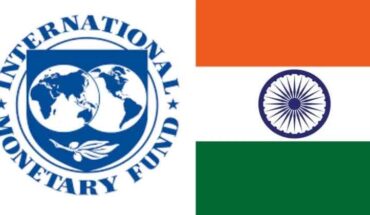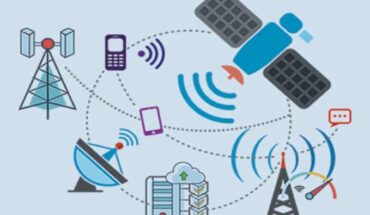You are rich when your money is making you new money with no effort on your part. You are not rich if you have to trade labour for money. Money management is way more important than earning money. That’s why it is said that financial literacy can make you rich.
By Narvijay Yadav
Financial literacy can make you rich. It is basically your relationship with the money you earn and how effectively you use it to improve your finances. Adopting proper budgeting, saving and investment is what financial literacy is all about. So step one is to make money which would be most important, but once you have money or sufficient income, step two becomes most important i.e. to utilize that money to its greatest potential or to help you achieve your long-term goals.
The world’s most successful investor Warren Buffett once said “Never invest in a business you do not understand.” An investment journey takes time and getting some financial knowledge or a short-term course is advisable. Starting from a small amount and for the long term is best practice. Starting an investing journey in the stock market has become so easy these days, it rarely takes ten minutes to mark your beginning. One just has to open a Demat account with a favorite stock broker firm. Things will take forward from there. It’s fairly easy. One should definitely allocate some percentage of yearly income into least-risk equity assets as a part of financial planning.
The question arises what about the emergency fund? Depending upon your income and expenses, this fund can be 6 to 12 months of the monthly income. If you earn Rs 40,000 a month and Rs 20,000 goes into meeting your routine living expenses, then your emergency fund should be in the range of Rs 2 to 4 Lakh. An emergency fund is an essential corpus that you must keep separate to tackle your emergencies. It is a fund you can utilize in the hour of crisis and for unexpected or unplanned scenarios, not for your regular expenses.
Chandrakant Patil, founder and CEO, Grofinance, says, “Money management is way more important than earning money. I know people with an income of over Rs 25 Lakhs per year, who are so deep in debt that they would lose everything if they ever had to go through a couple of months without a paycheck. Once you have made some money you need to figure out what you are going to do with it. You can spend it, save it or invest it, or a mix of these three.”
Gone are the days when women used to stand aloof from money matters. Women today are breaking age-old barriers and financial independence is one of them. With improved participation of women in the workforce, soaring careers, and inheritance, women possess a growing amount of wealth globally. A financial plan helps you be in control of your income, expenses, and investments, such that you can manage your money and achieve your goals. What’s even more important is how prudently women spend and invest their money. Women need to be financially independent no matter whether they are working, stay-at-home moms, or a homemaker: to meet the rising cost of living, be able to save, spend, invest and feel in control.
Is it necessary to be a miser to create wealth? Being a miser is absolutely a bad trait in a person, but it can be a good quality as well when you are financially literate and you do not want to waste your hard-earned money on unnecessary luxuries. One must understand the difference between need and lavishness, till someone is addressing the needs and is sensible about lavishness it’s fine to be a miser.
What are some smart habits for saving, budgeting, and growing your Income? Simple, wait before buying a newly released item and don’t pay the premium price. Always try to pay for things with cash or debit, not credit cards. Minimize credit card debt or any other debt if you have one. Always track your expenses and try to cut down on your unnecessary spending. Your savings should be at least 10% of your monthly income. Decide on your priorities while spending. Extra money doesn’t mean buying more, but it gives you an option to save more.
India’s FinTech vehicle is moving on the wheels of financial inclusion and trust. There is no doubt that a new type of revolution is taking shape in the country with the combination of finance and technology. Rich or poor, the FinTech revolution is bringing a pleasant change in the life of everyone. Financial transactions have started getting faster. Intermediaries are vanishing from the marketplace. The common man is also able to take full advantage of the facilities of Fintech like digital payments, Paytm wallet, etc. India has changed the course of banking with 43 crore Jan Dhan accounts in the last seven years. So far 69 crore RuPay cards have been issued through which 1.3 billion transactions were done last year. About 4.2 billion transactions were made possible last month through the Unified Payments Interface (UPI). Businesses in India upload nearly 30 crore invoices to the GST (Goods and Services Tax) portal every month, which involves payments of more than $12 billion.
Despite the COVID-19 pandemic, around 15 lakh railway tickets were booked online every day. Last year, 1.3 billion transactions were made possible through FASTag. If money is the lifeblood of the economy, technology is its vehicle. It can also be said that the birds of money fly with the wings of technology. Our country had the highest dependence on ATM machines till the year 2014. If you wanted to buy anything, you had to pay by withdrawing cash from the ATM machine. Due to the accessibility of the Internet, gradually the trend of mobile banking and net banking started increasing. Post demonetization, ATM usage declined at an annual rate of 10 percent since the year 2017. In place of cash transactions, the trend of payment through mobile wallets started.
Narvijay Yadav is a senior journalist and columnist. Views are personal
Email: narvijayindia@gmail.com






